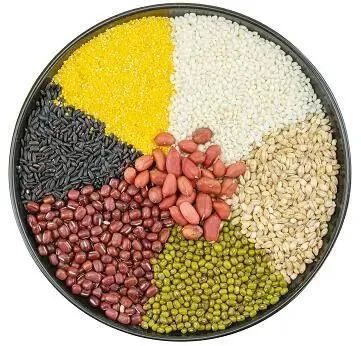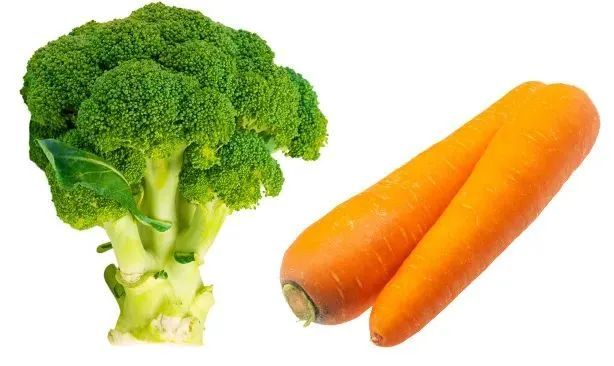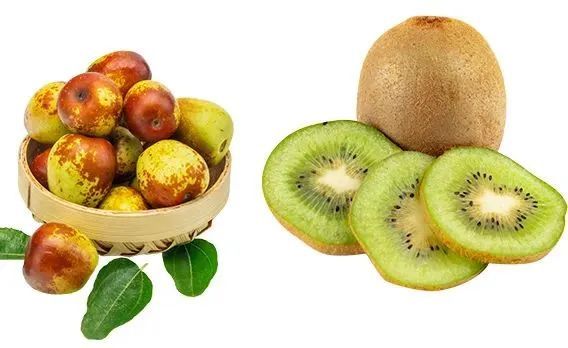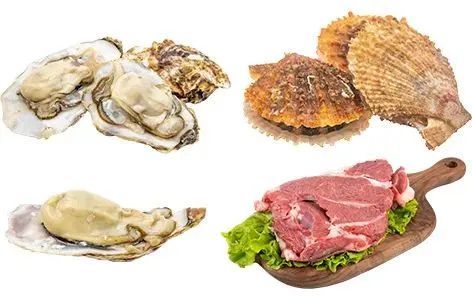Ushering in a normal life and returning to shopping, do you want to eat all the food you miss in turn? Wait a minute, overeating is not good, but the following 6 types of food must be prepared, they can improve immunity.6 kinds of food to improve immunity
Egg
Eggs are the food with the highest protein score. Protein is the material basis of the immune system and has a very close relationship with the tissue formation and organ development of the immune system. Some people like to discard the yolk when eating eggs because they are worried about the cholesterol in the egg yolk, which is very bad.
The protein in egg yolks of the same weight is higher than that in egg whites. In addition, the nutrients in egg yolks are relatively high in vitamins a and d. These nutrients are essential for the normal functioning of the immune system. The behavior of eating eggs and discarding the yolks It is tantamount to buying caskets and returning pearls.
One egg a day, without discarding the yolk.

Milk
Protein is the main nutritional component of milk, of which whey protein accounts for about 20%. Whey protein only exists in milk, including immunoglobulin, lactoferrin and other biologically active proteins. Immunoglobulin is an important component of immunity in the human body, and it is also the material basis for the body to fight against pathogenic microorganisms. Lactoferrin is an immunomodulator that acts on both innate and adaptive immune responses. On the other hand, the protein digestion and absorption rate in milk is high, which can reach 90-100%.
Drink more than 300 ml of milk every day.

Whole grain
Grains are an indispensable protagonist on the Chinese table, and can be divided into refined grains and whole grains according to the degree of processing. Although the taste of whole grains is more “rough”, the rough part and germ of the outer layer are retained, and the content of B vitamins, dietary fiber, minerals, etc. is higher, and it also contains some healthy phytochemicals .
B vitamins are the best “assistants” for the normal operation of the immune system. They are important coenzymes involved in human metabolism. They can mediate immune regulation and assist the normal operation of the immune system, especially vitamin b1. Whole grains are an important source of vitamin B1.
A total of 50-150 grams of whole grains and legumes are required per day.
Note: According to the “Dietary Guidelines for Residents”, whole grains refer to “the endosperm, germ, bran that have not been refined, or have been milled, crushed, tableted, etc., but still retain the integrity of the grain. Grains with natural nutrients such as husks”, such as germ rice, whole wheat, oats, quinoa, rye, buckwheat, sorghum, corn, etc.

Vegetables rich in vitamin A such as broccoli and carrots
Vitamin A is the “guardian” of the normal operation of the immune system. It participates in the whole process of the maturation of the human immune system. It can improve the stability of cell membranes, improve cellular immune function, promote immune cells to produce antibodies, and promote T lymphocytes to produce certain lymphokines. . When vitamin A is deficient, the expression of retinoic acid receptors in immune cells decreases accordingly, which affects the immune function of the body.
Vitamin A only exists in the animal body, and is more abundant in animal liver and egg yolk. Plants do not contain vitamin a, but red-yellow and dark green vegetables and fruits contain pro-vitamin a-carotene. Representative foods are broccoli, carrots, kale, spinach, etc.
Daily intake of vegetables 300-500 grams, dark vegetables account for half.

Fruits rich in vitamin C such as kiwi
Vitamin C can enhance the body’s anti-stress ability and immunity to the external environment. Lack of vitamin C will reduce the body’s immunity and body’s ability to stress, and the probability of successful bacterial and virus invasion will increase, making it easy to get sick.
Vitamin C is widely found in fresh vegetables and fruits. Typical common foods are blackcurrant, kiwi, etc. The content of vitamin C in citrus fruits such as citrus, lemon, and orange is slightly lower.
The daily intake of fruits is 200-350 grams, mainly fruits rich in vitamin C.

Zinc-rich foods such as shellfish and beef and lamb
Zinc is the “core member” of the normal operation of the immune system, and participates in the composition of more than 200 enzymes, known as the “flower of life”. When people are deficient in zinc, the function of T cells is impaired, causing changes in cell-mediated immunity, weakening the immune mechanism, reducing resistance, and making the body susceptible to bacterial and viral infections. Zinc deficiency in the human body can also lead to sluggish taste, lack of appetite, and affect nutrient absorption.

The zinc required by the human body mainly comes from animal foods. Shellfish and seafood are rich in zinc and have a high absorption rate. The zinc content in beef and mutton is also high.
Consume 20 grams of oysters per day, or 100 grams of scallops/oysters/goat meat.
No matter what kind of “enemy” you are facing, it must be king to strengthen yourself first. Dietary nutrition is the same as the barrel effect. How much water can be filled is not determined by the long board, but by the shortest board. In order to comprehensively improve immunity, it is necessary to have the same balance and variety of food, and then on this basis, appropriate intake can enhance the Immunity-enhancing foods must not blindly pursue immune-enhancing foods and ignore other foods.
Read more tips about health and fitness http://www.growmorehealth.com
